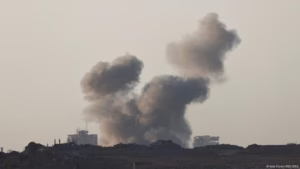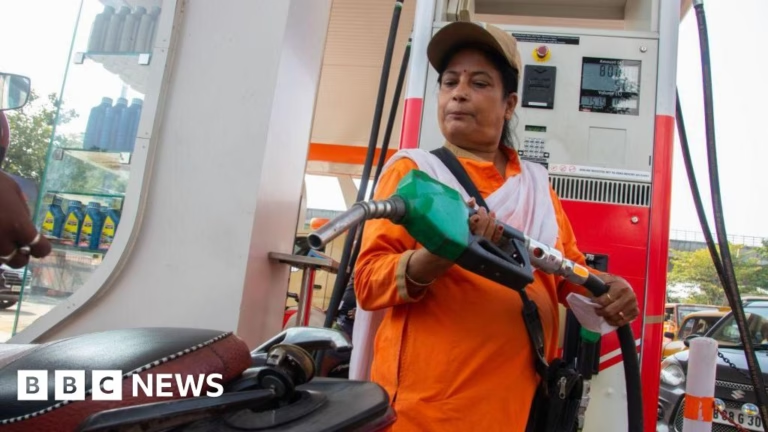David Silverberg
Business reporter
Business reporter

Learning Resources
Rick Woldenberg says he believes in taking action rather than just “hoping for the best”
When an Illinois toymaker heard that Trump was introducing tariffs on Chinese imports, he was so incensed that he decided to sue the US government.
“I’m inclined to stand up when my company is in genuine peril,” says Rick Woldenberg, who is the CEO of educational toy firm Learning Resources.
The majority of his company’s products are made in China, so the tariffs, which US importers have to pay, not Chinese exporters, are now costing him a fortune.
He says his import taxes bill leapt from around $2.5m (£1.5m) a year to more than $100m in April when Trump temporarily increased tariffs on Chinese imports to 145%. That would have “devastated” the company, he says.
“This kind of impact on my business is just a little bit hard to wrap my mind around,” he says.
With US tariffs on Chinese imports now at 30%, that’s still unaffordable for many American companies such as Learning Resources.
So in addition to its continuing legal fight, it is changing its global supply chain, moving production from China to Vietnam and India.

Global supply chain expert Les Brand says that it is both expensive and difficult for companies to switch manufacturing to different countries.
“Trying to find new sources for critical components of whatever you are doing – that’s a lot of research,” says Mr Brand, who is CEO of advisory firm Supply Chain Logistics.
“There’s a lot of quality testing to do it right. You have to spend the time, and that really takes away from the business focus,” he added.
“Trying to find new sources for critical components of whatever you are doing – that’s a lot of research,” says Mr Brand, who is CEO of advisory firm Supply Chain Logistics.
“There’s a lot of quality testing to do it right. You have to spend the time, and that really takes away from the business focus,” he added.

Cluck Clucks
Raza Hashim says he’ll likely have to put up prices
“These tariffs will directly impact the end consumer [in the US],” says Rafael Alonso Barrau, the firm’s export manager.
The company also says it is looking at potentially reducing the volume it sends to the US, if the tariffs make trading there less profitable, and exporting more to other countries instead.
Mr Brand says that firms around the world would have been less impacted if Trump had moved more slowly with his tariffs. “The speed and velocity of these decisions are really making everything worse. President Trump should have gone slower and been more meaningful about these tariffs,” he said.
Back in Illinois, Mr Woldenberg is also concerned about where Trump will go next in his trade battles.
Back in Illinois, Mr Woldenberg is also concerned about where Trump will go next in his trade battles.
“We just have to make the best decision we can, based on the information we have, and then see what happens,” Mr Woldenberg added.
“I don’t want to say ‘hope for the best’, because I don’t believe that hope is a strategy,” he concluded.







